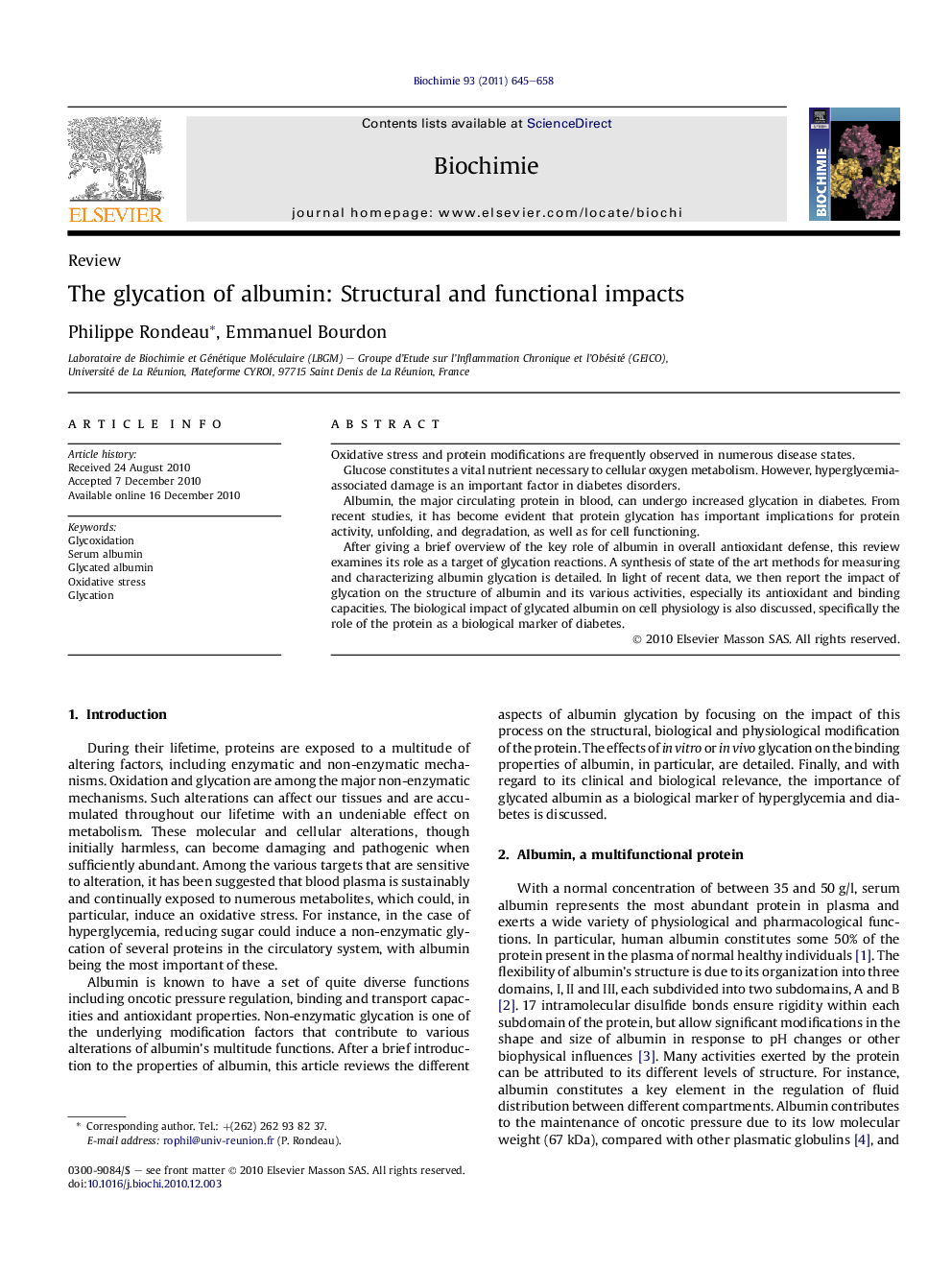| Article ID | Journal | Published Year | Pages | File Type |
|---|---|---|---|---|
| 1952641 | Biochimie | 2011 | 14 Pages |
Oxidative stress and protein modifications are frequently observed in numerous disease states.Glucose constitutes a vital nutrient necessary to cellular oxygen metabolism. However, hyperglycemia-associated damage is an important factor in diabetes disorders.Albumin, the major circulating protein in blood, can undergo increased glycation in diabetes. From recent studies, it has become evident that protein glycation has important implications for protein activity, unfolding, and degradation, as well as for cell functioning.After giving a brief overview of the key role of albumin in overall antioxidant defense, this review examines its role as a target of glycation reactions. A synthesis of state of the art methods for measuring and characterizing albumin glycation is detailed. In light of recent data, we then report the impact of glycation on the structure of albumin and its various activities, especially its antioxidant and binding capacities. The biological impact of glycated albumin on cell physiology is also discussed, specifically the role of the protein as a biological marker of diabetes.
Research highlights► Oxidative stress and protein modifications are frequently observed in numerous disease states. ► Hyperglycemia-associated damage is an important factor in diabetes disorders. ► Albumin, the major circulating protein in blood, can undergo increased glycation in diabetes. ► This review examines albumin role as a target of glycation reactions. ► Glycation impacts on albumin and its role as a biological marker of diabetes are detailed.
